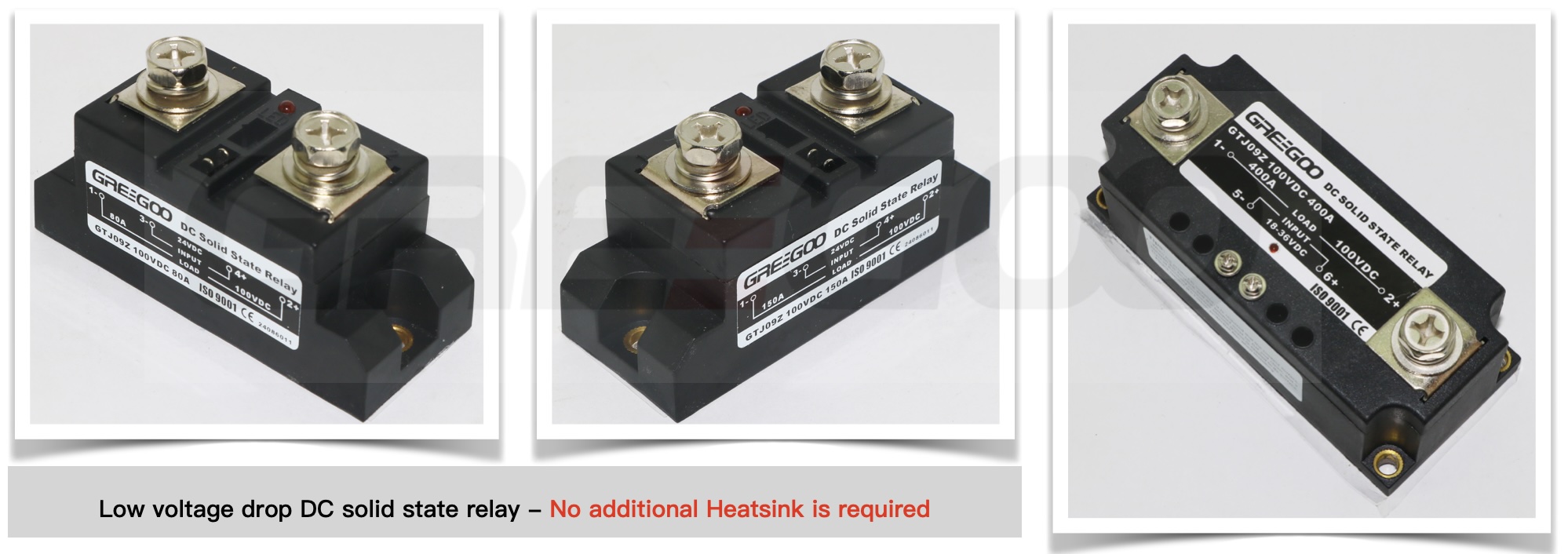Advantages of Low Voltage Drop DC Solid-State Relays - Heatsink is not required
The main advantage of a low voltage drop DC solid-state relay is its lower energy loss during operation. Here are the specific benefits of low voltage drop:
1. Reduced Energy Loss
A low voltage drop means less voltage is lost when the relay is in the conducting state, thereby reducing power loss (Power Loss = Current × Voltage Drop). This is especially important in high-current applications, where a smaller voltage drop can significantly reduce heat generation and energy waste.
2. Improved Efficiency
In DC circuits, a low voltage drop improves the overall system efficiency, which is particularly critical in battery-powered or solar-powered systems.
3. Less Heat Generation
A low voltage drop results in less heat being generated within the relay, reducing the need for heat dissipation. This not only extends the relay's lifespan but also minimizes the need for additional cooling equipment.
4. Better Suitability for High-Current Applications
In high-current scenarios, a low voltage drop solid-state relay can handle large currents more effectively without causing excessive energy loss or overheating.
5. Enhanced System Stability
A low voltage drop reduces voltage fluctuations in the circuit, thereby improving system stability and reliability.
6. Ideal for Low-Voltage Systems
In low-voltage DC systems (e.g., 12V or 24V systems), every volt of voltage drop can significantly impact system performance. A low voltage drop relay minimizes this impact.
In summary, low voltage drop DC solid-state relays offer significant advantages in terms of efficiency, low heat generation, and high reliability, making them particularly suitable for applications requiring high efficiency and low energy consumption.
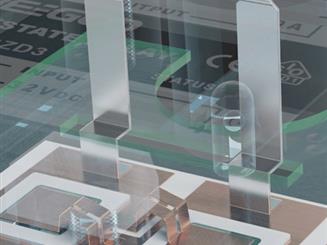
Solid state relays
Greegoo's SSR, solid state relays, structure, appearance, types and features. Single phase, ac switching and dc switching, panel mount and solid state modules, 10A to 400A.
Read More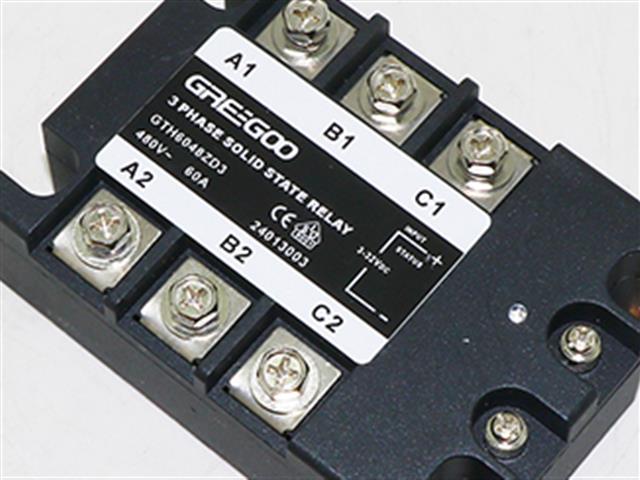
Solid-state relay parameter terms explanation in English.
Parameters terms explanation of SSR
Read More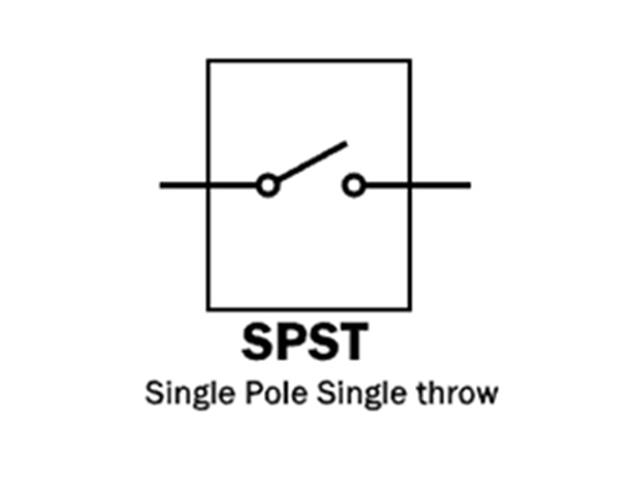
Differences Between Vacuum Relay, SPST-NC, STST-NO, SPDT, and DPDT Switches
SPST-NC, STST-NO, SPDT, and DPDT vacuum relay
Read More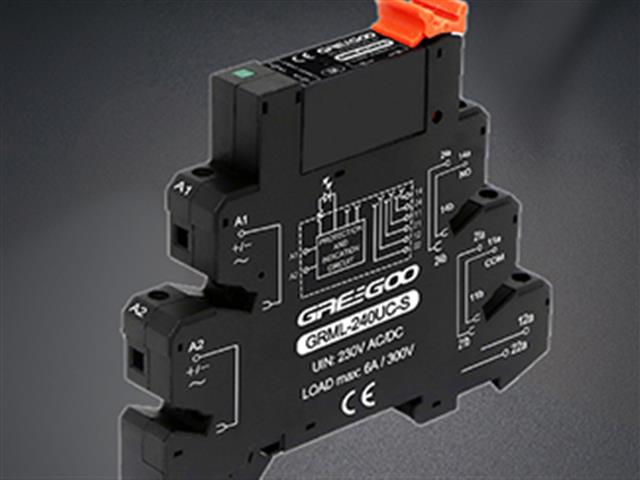
Socket Solid State Relay and Solid State Relay with Integrated Heatsink, what's the difference between feature and application
DIN rail mounted Socket Solid State Relay and Solid State Relay with Integrated Heatsink
Read More











